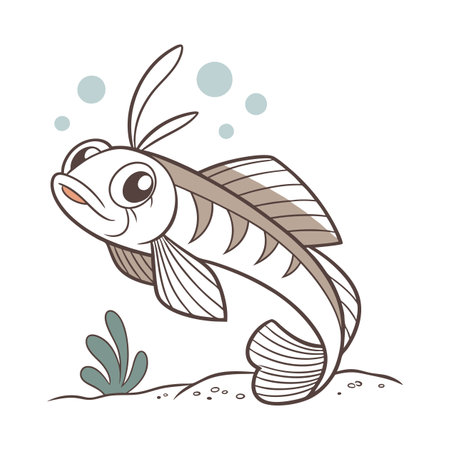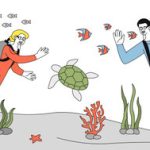1. Understanding the Purpose of Fishing Licenses
In the United States, fishing licenses arent just a legal requirement—they play a much bigger role in protecting our natural resources. Whether youre casting a line in a quiet lake or heading out on a deep-sea adventure, having a valid fishing license helps support conservation and wildlife management efforts across the country.
Why Are Fishing Licenses Required?
Fishing licenses help state and federal agencies manage fish populations and maintain healthy ecosystems. The money collected from these licenses goes directly toward efforts that ensure future generations can enjoy fishing too. Heres how your license fee helps:
| Use of Funds | How It Helps |
|---|---|
| Conservation Programs | Protects aquatic habitats, improves water quality, and restores fish species. |
| Wildlife Management | Helps monitor fish populations, set sustainable catch limits, and prevent overfishing. |
| Fish Stocking | Adds fish to lakes, rivers, and reservoirs to maintain balance and enhance recreational fishing opportunities. |
| Research & Education | Funds studies on fish behavior, environmental impact, and teaches the public about responsible angling. |
| Enforcement | Pays for game wardens and officers who make sure fishing laws are followed. |
A Shared Responsibility
By purchasing a fishing license, anglers become partners in preserving Americas rich fishing heritage. Its not just about following the rules—its about making sure our lakes, rivers, and oceans remain vibrant for everyone to enjoy. Even if youre only planning to fish once or twice a year, your contribution still makes a difference.
Did You Know?
Many states offer discounted or even free licenses for youth, seniors, veterans, and people with disabilities—making it easier for everyone to get involved in outdoor recreation while supporting conservation.
The Bottom Line
A fishing license is more than just permission to fish—its an investment in nature. Every time you buy one, youre helping protect the waters you love to fish in.
2. Who Needs a Fishing License?
If youre planning to cast a line in the United States, chances are youll need a fishing license. But whether you need one—or what kind—depends on several factors like your age, where you live, and the type of fishing you’re doing. Lets break it down.
Age Requirements
Most states require anglers over a certain age to have a fishing license. However, kids and seniors often qualify for exemptions or discounted licenses.
| Age Group | License Requirement |
|---|---|
| Under 16 | Usually exempt (recreational) |
| 16–64 | License required in most states |
| 65 and older | Often eligible for discounts or exemptions |
Residency Status
Your residency status plays a big role in how much you pay and what kind of license you need.
| Status | Description | License Type |
|---|---|---|
| Resident | You live in the state and meet residency requirements (varies by state) | Resident license (usually cheaper) |
| Non-resident | You live outside the state where youre fishing | Non-resident license (usually more expensive) |
Type of Fishing: Recreational vs. Commercial
The reason youre fishing also matters. Heres how it breaks down:
| Type of Fishing | Description | License Needed? |
|---|---|---|
| Recreational | Catching fish for personal enjoyment or consumption, not for sale | Yes, a recreational fishing license is usually required |
| Commercial | Catching fish with the intent to sell or trade them | Yes, a commercial fishing license is always required; regulations are stricter |
Common Exemptions Across States
While rules can vary, many states offer similar exemptions. Here are some typical examples:
- Youths under 16: Most states allow children to fish without a license.
- Seniors: Some states offer free or reduced-cost licenses for residents over a certain age.
- Fishing on Free Fishing Days: Many states designate specific days when anyone can fish without a license.
- Pier or charter boat fishing: In some cases, if youre fishing from a public pier or guided boat, the operator’s permit may cover you.
- Natives and disabled individuals: Certain states provide special exemptions for Native American tribes or individuals with disabilities.
The bottom line: Always check your state’s specific regulations before heading out. Each state has its own set of rules that determine who needs a license and when exceptions apply.

3. Types of Fishing Licenses Available
When it comes to fishing in the U.S., not all fishing licenses are created equal. Depending on where you plan to fish and how often, there are different types of licenses that may suit your needs better. Lets break down the most common options so you can choose the right one for your next fishing trip.
Freshwater vs. Saltwater Licenses
The first thing to know is that fishing licenses are often divided based on the type of water youre fishing in:
| License Type | Description | Common Use |
|---|---|---|
| Freshwater License | Covers lakes, rivers, streams, and ponds. | Fishing for bass, trout, catfish, etc. |
| Saltwater License | Covers coastal waters and ocean shorelines. | Fishing for redfish, flounder, snapper, etc. |
| Combo License | Allows fishing in both freshwater and saltwater areas. | Great for anglers who fish in various environments. |
Short-Term vs. Annual Licenses
If youre not planning to fish year-round, a short-term license might be a better fit. Heres how these two compare:
| License Duration | Description | Best For |
|---|---|---|
| Short-Term License | Valid for 1 to several days depending on state rules. | Tourists or occasional anglers. |
| Annual License | Covers an entire calendar year or 12-month period from purchase date. | Frequent or seasonal anglers. |
Other Specialty Licenses
Some states also offer additional license types:
- Youth Licenses: Often discounted or free for young anglers under a certain age (usually 16).
- Senior Licenses: Discounted rates for older adults—age requirement varies by state.
- Lifelong Licenses: One-time purchase that covers you for life—ideal for dedicated anglers.
- Disability & Veteran Licenses: Special rates or exemptions may apply based on eligibility.
Tip:
The exact names and rules for each license type can vary by state. Always check with your local fish and wildlife department to make sure youre getting the right one for your needs.
No matter what kind of angler you are—weekend warrior or full-time fishing fanatic—there’s a license option out there that fits your style and budget.
4. How and Where to Get a Fishing License
Getting a fishing license in the U.S. is easier than you might think, and there are several convenient ways to do it. Whether you prefer going online or stopping by a local store, there’s an option that fits your lifestyle. Heres a simple guide to help you through the process.
Ways to Get a Fishing License
You can get your fishing license through one of these common methods:
| Method | Description |
|---|---|
| Online | Most states offer online licensing through their official wildlife or fish & game department websites. You can purchase, renew, and sometimes even print your license right from home. |
| In Person | You can visit authorized retailers like sporting goods stores (e.g., Bass Pro Shops, Cabela’s, Walmart), bait shops, or outdoor recreation centers. |
| State Agencies | You can also go directly to a state fish and wildlife agency office for assistance and to get detailed information specific to your region. |
What You’ll Need
Before you apply for a fishing license, make sure you have the following:
- A valid ID (like a driver’s license)
- Your Social Security number (some states require it)
- Your residency status (resident or non-resident)
- The type of license you need (freshwater, saltwater, combo, etc.)
Helpful Tips
- If youre under a certain age (usually 16), you might not need a license—check with your state agency.
- You can often choose between daily, annual, or lifetime licenses depending on how often you fish.
- Keeps tabs on renewal dates so you don’t get caught fishing without a valid license!
Find Your State’s Licensing Website
If youre not sure where to start, head to the official website of your states Department of Natural Resources (DNR) or Fish and Wildlife agency. Here are some examples:
| State | Website |
|---|---|
| California | wildlife.ca.gov/Licensing |
| Texas | tpwd.texas.gov |
| Florida | myfwc.com/license/ |
No matter where you plan to cast your line, getting properly licensed is quick and hassle-free when you know where to look.
5. What Happens If You Fish Without a License?
Fishing without a valid license in the United States might seem like a small oversight, but it can lead to some serious consequences. Each state has its own rules and enforcement practices, but one thing is consistent across the board—fishing without a license is illegal and can cost you more than just your catch of the day.
Fines and Penalties
If you’re caught fishing without a valid license, you could be facing fines that vary depending on where you are. Some states treat it as a minor infraction, while others may classify it as a misdemeanor. Here’s a quick look at what you might expect:
| State | Typical Fine for First Offense |
|---|---|
| California | $100 – $1,000 plus court fees |
| Texas | $25 – $500 depending on circumstances |
| Florida | $50 fine plus cost of a license and administrative fees |
| New York | $100 – $250 plus possible additional penalties |
Repeat offenses often come with harsher penalties, including higher fines or even potential jail time in some states.
Legal Implications
A fishing citation may show up on your legal record depending on how your state classifies the offense. In many places, it’s considered a non-criminal violation or civil infraction—but in others, especially after repeated violations, it could escalate to a misdemeanor charge. That might not only impact your ability to fish legally again but also create issues when applying for certain jobs or licenses in the future.
Losing Fishing Privileges
If youre caught fishing illegally multiple times, states may suspend or revoke your fishing privileges altogether. This means you won’t be able to get a license for a certain period of time—and if you try to fish during that suspension, the consequences become even more severe.
Example Scenario:
- First Offense: $150 fine and required to purchase a valid license.
- Second Offense: $500 fine and 1-year suspension of fishing privileges.
- Third Offense: Possible misdemeanor charges and permanent revocation in extreme cases.
Your Catch Could Be Confiscated
If wildlife officers catch you fishing without a license, they may confiscate your fishing gear or any fish you’ve caught. Some states even have the authority to seize boats or vehicles used during illegal fishing activity.
The Bottom Line
A fishing license doesn’t just help fund conservation efforts—it protects you from unnecessary trouble. Paying a small fee upfront can save you from big headaches later on. Always check your state’s regulations before heading out with your rod and reel.
6. Tips for First-Time Anglers
If youre new to fishing, getting started can feel a bit overwhelming—especially when it comes to understanding fishing licenses and regulations. Here are some practical tips to help you stay on the right side of the law while enjoying your time on the water.
Choose the Right Fishing License
Before you cast your first line, make sure you have the correct fishing license for your needs. Licenses vary by state, and often depend on factors like age, residency status, and the type of fishing you plan to do (freshwater vs. saltwater).
Common License Types:
| License Type | Description |
|---|---|
| Resident License | For individuals who live full-time in the state where they’re fishing. |
| Non-Resident License | For visitors from out of state who want to fish temporarily. |
| Short-Term License | Valid for a limited number of days (often 1–7 days), great for vacations or weekend trips. |
| Annual License | Covers an entire calendar year; ideal if you plan to fish regularly. |
| Youth or Senior License | Discounted licenses for younger or older anglers; availability varies by state. |
Check State Regulations Before You Go
Fishing laws are set at the state level, so its important to review local rules before heading out. Each state has its own guidelines regarding fishing seasons, bag limits, size limits, and restricted species. Ignorance isn’t an excuse—violating these rules can result in fines or even license suspension.
Where to Find Rules:
- Your state’s Fish and Wildlife Department website
- Printed regulation booklets available at license vendors
- Official mobile apps (see below)
Use Mobile Apps for Convenience and Compliance
A number of states now offer official mobile apps that make it easier than ever to stay legal while fishing. These apps often allow you to buy and store your license digitally, check current regulations, find nearby fishing spots, and even report catches or invasive species.
Popular State Apps Include:
- Go Outdoors GA (Georgia)
- Fish Washington (Washington State)
- Texas Parks & Wildlife App (Texas)
- MyFWC (Florida)
If your state doesn’t have an app, consider bookmarking their official wildlife agency website on your phone for easy access while youre out on the water.
Final Tip: Keep Your License Handy
No matter how you purchase your license—online or in person—make sure you carry it with you while fishing. In most states, its acceptable to show a digital copy saved on your phone, but double-check with local authorities just to be sure.
With the right prep work and tools, first-time anglers can enjoy a hassle-free start to this rewarding outdoor hobby.

